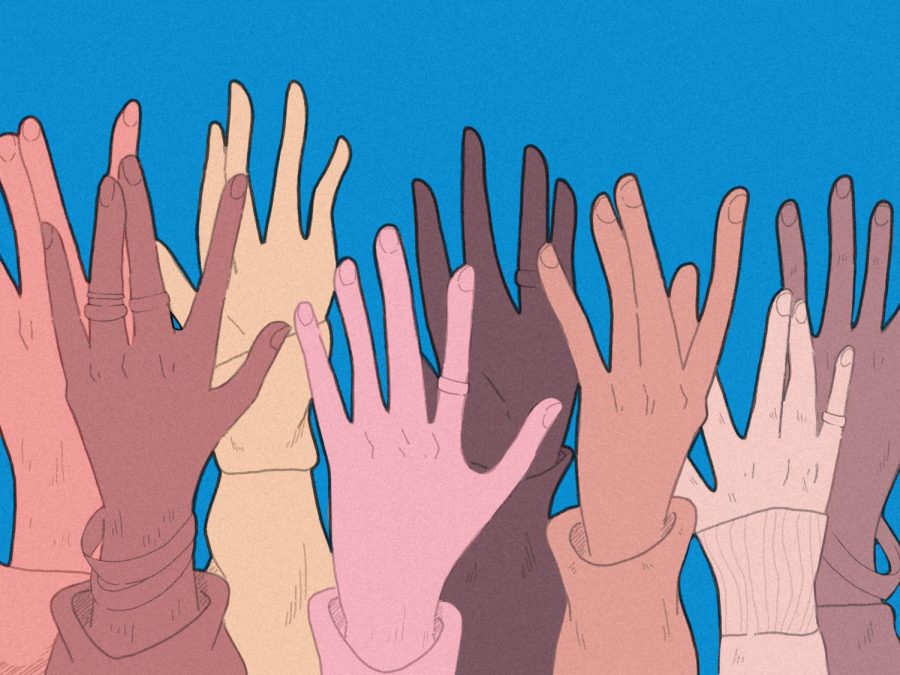WSU prioritizes diversity, equity, inclusion
WSU aims to hire professors, faculty from social justice backgrounds
WSU works to meet and exceed current requirements outlined by a new bill pushing for equity and diversity in higher education.
November 11, 2021
A summit held on Nov. 3 at WSU showcased how faculty can change structures through individual actions and highlights the important work that is being done to include and retain diverse staff.
The Diversity, Equity, Inclusion and Justice Summit is a response to a new bill passed by the Washington State Legislature. Bill 5227 requires diversity, equity, inclusion and antiracism training and assessments at institutions of higher education. It went into effect on July 25, according to the Washington State Legislature website.
Jaime Nolan, WSU associate vice president for community, equity and inclusive excellence, said WSU is already ahead of the game.
“In some respects, I will say that we’ve already been working a lot on what the bill is asking of us,” Nolan said.
Elizabeth Chilton, WSU provost and executive vice president, also mentioned her work with DEIJ at WSU did not begin once the bill was passed. In fact, she has been working on DEIJ for over a year.
“One of the large ways that I have leaned in, in the past 15 months, is through the initiation of our faculty cluster hire in racism and social inequality [specializations] in the Americas,” Chilton said.
WSU is hiring professors who live and breathe social justice in the U.S. The hiring team was able to hire five new faculty members and a second cohort of staff for the 2022 fall semester. They will help WSU “build this emphasis on equity-minded scholarship, and community-engaged and applied scholarship,” said Lisa Guerrero, WSU associate vice provost for equity and inclusive excellence.
Due to the labor shortages and strikes for better working conditions, retention of employees is what really matters. In fact, 35 percent of higher education institutions report a higher movement within their staff. Thirty-three percent also said they were facing a higher student to faculty ratio, mostly because of the pandemic, according to an article in PlanSponsor.
“So as research has shown, recruitment actually isn’t where most institutions fall down, and that includes WSU. It’s the retention of diverse faculty and staff where we are weaker,” Nolan said.
Guerrero showed more concrete examples of what WSU has done and will continue to do to retain scholars and employees through training.
“Each training you see here … focuses on one crucial aspect of successful retention; so DEI hiring practices, equity minding mentoring, minimizing unconscious bias and microaggressions and again, mindfulness in anti-racism,” Guerrero said.
The speakers were hoping this program — retaining scholars who work closely with and are deeply integrated into the communities they study — will work toward improving academic social health and wellness outcomes for students of color and students from historically marginalized communities.
“We create structure and processes that help us move toward reparation, toward elimination of structural racism. So we are really building a force and building infrastructure that allows us to move in that direction,” Nolan said.
Moving toward a future without inherent structural racism is an important move for the U.S. as a whole. Critical race theory is widely and wildly misunderstood, according to a Reuters article.
Critical race theory can be best described as a counterargument to liberal race theory. Liberal race theory states that racism is an individual ignorance problem. If there were fewer bigots in the world, we would have less racism and then historically marginalized groups would be able to flourish. However, critical race theory is the idea that there is more to the problem than just individuals, according to an essay in HarvardLawReview.
There are other things to take into consideration, such as the distribution of racial power and breaking down how racial inequality is embedded into America’s legal structure, said Garrison Hayes, the previous Diversity, Equity, and Inclusion program coordinator at University of Virginia.
“Critical race theory essentially argues that racism is embedded into different parts of society, like the law and policy and systems. And it offers tools like impact analysis and listening to marginalized voices as important strategies to uncover and uproot racism,” Hayes said.
If suddenly all the bigots and racists of the world disappeared overnight, it would only serve as a skin-deep solution to major issues that “Person of Color” communities face every day, Hayes said. The training higher learning institutions will offer is focused on individuals. However, mindfulness and antiracism will remove individuals from their own experiences and show how they can contribute to the group as a collective experience.
“I hope attendees take away that DEIJ is a process that is alive everywhere in our institution, and that there are opportunities to get involved no matter where you are in your DEIJ journey,” said Matthew Jeffries, director for the WSU Gender Identity/Expression and Sexual Orientation Resource Center.









